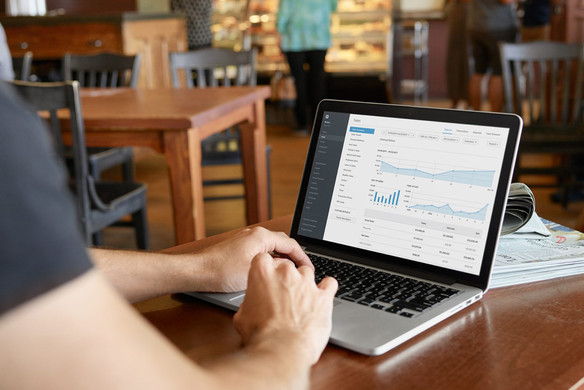Table of contents
As a business owner, you are driven by the passion you have for your business. Since the start of your business, you’ve probably learned lessons you never anticipated and put more hours into your business than you ever thought possible. And there have probably been many times when you’ve forgone a paycheck.
If that sounds like you, you’re not alone. Thirty-eight percent of business owners don’t take a salary, according to our recent survey of 1,000 U.S small business owners.
Many business owners feel that if they put all their earned money back into their business, they will get a better return on their investment and see quicker growth. That’s not always true, especially when tax season comes around.
Growing your business is not easy. It takes a lot of patience and resilience. It can be especially difficult when your business is just starting out, but it’s important that you set yourself up for success and compensate yourself for the work you put into your business.
One of the most important benefits of paying yourself is that it helps you build up your personal savings. That’s a good thing for you, obviously, but it can also benefit your business. If you want to buy a space at some point, for example, depending on the way your business is set up, your own personal savings may be instrumental in helping secure a loan.
Paying yourself also looks good to investors as well as banks and other finance companies. Your willingness to invest in yourself demonstrates a high level of commitment and confidence in the health of your business.
And in addition to incentivizing your work (who doesn’t love a paycheck?), there may also be tax benefits to paying yourself, depending on how your business is set up. (You’ll want to check in with your accountant or financial advisor about that.)
Taking a salary may seem like an impossible option as you do your company’s payroll, especially if you have employees, but knowing where to start and having a backup plan can help make sure you are achieving what you set out to do in the long term: make a living and reach your goals.
Where to start
When you do decide it’s time to pay yourself, make sure to be reasonable. What amount is reasonable is different for every business. Calculate how much it costs for you to live, and make sure to factor in health insurance. From our survey, we found that one in ten small business owners are not covered by health insurance, and the one in four of small business owners who have a second job do so for health insurance.
The IRS also provides guidelines for figuring out what is reasonable compensation for your business in relation to the cost of living. It’s important to abide by its criteria, and as your business grows, you can reevaluate that number.
Things to also factor in when deciding how much to pay yourself include:
- Planning for the future
If you have plans for expansion in the future, start planning ahead and incrementally saving now. If you save over time, instead of all at once, you don’t have to cut back as much in other areas of your business when it comes time to expand. - Tax season
It sneaks up on us every year, but with tax season often come hidden tax fees you didn’t expect. Make sure to constantly review your books so when you are taking a salary, you are considering what you’ll be taxed down the line. - Maintaining an emergency fund
Businesses can be unpredictable, and often things go awry that are out of your control. If possible, create a cushion for your business, in case of an emergency. You may have a bad month from time to time, and creating an emergency fund that you factor into your monthly business expenses makes it less likely that you will have to drastically cut your own pay in those instances.
We always recommend speaking with an accountant or other financial advisor before making financial decisions. They should be able to assist you in determining what a reasonable salary looks like and how you should pay yourself (depending on your business entity). And they should help you make sure that your personal finances are separate from your business finances (which reduces the chances of making some kind of error).
Making money when you own your business can be tricky, and turning a profit doesn’t always translate into a salary. But if you invest every dime you have into your business and don’t take a salary, you put yourself at risk for not having anything to show for all your hard work.
For more insights on the passion small business owners have and the struggles they face, check out our Heart and Hustle report.
![]()











